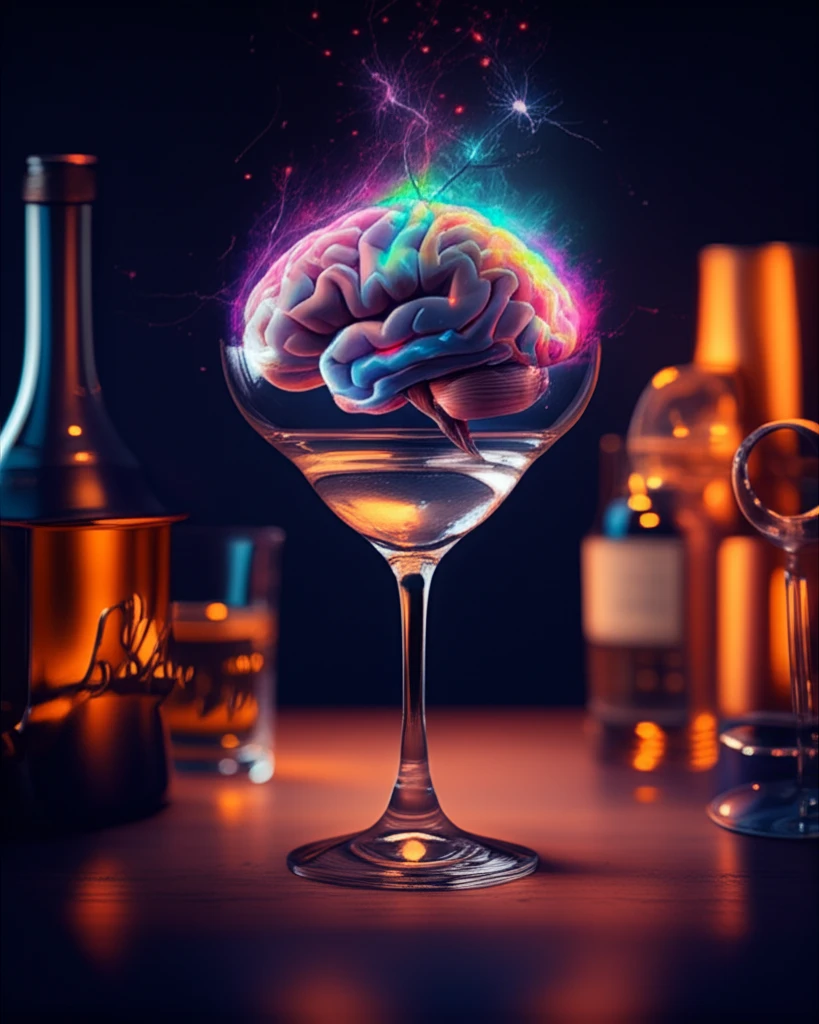
Can a Night Out Save Your Brain? Exploring Alcohol's Surprising Role in Traumatic Brain Injury Recovery
"Emerging research suggests that, in some cases, acute ethanol exposure might offer a protective effect against the damaging cascade of neuroinflammation following TBI, but intracerebral hemorrhage overrides the beneficial effects of ethanol."
Traumatic brain injury (TBI) stands as a major global health challenge, contributing significantly to both mortality and long-term disability. Each year, millions of individuals sustain TBIs, leading to a substantial burden on healthcare systems and a profound impact on the lives of survivors and their families.
Alcohol intoxication is a frequent co-occurrence in TBI cases, with a considerable percentage of TBI patients presenting with positive blood alcohol levels (BALs) upon hospital admission. This intersection raises a critical question: How does alcohol, a substance known for its complex effects on the body and brain, influence the outcomes of TBI?
Conflicting findings have emerged from clinical and experimental studies, with some suggesting a link between positive BALs and improved TBI outcomes, while others report no such association or even detrimental effects. This inconsistency underscores the need for further research to elucidate the underlying mechanisms and determine the true impact of alcohol on TBI pathophysiology and recovery.
Ethanol's Potential Protective Mechanisms: Decoding the Science

A recent study published in International Immunopharmacology sheds new light on this complex relationship. Researchers investigated the effects of acute ethanol administration on neuroinflammation and sensorimotor recovery in a murine model of TBI. By examining the intraparenchymal cytokine profiles and assessing sensorimotor performance, the study aimed to unravel the potential protective mechanisms of ethanol in the context of TBI.
- Reduced Leukocyte Infiltration: Fewer immune cells entering the brain tissue.
- Decreased Microglial Activation: Microglia, the brain's resident immune cells, showed reduced activity.
- Modulated Cytokine Profile: Alterations in the levels of key inflammatory mediators, including decreased GM-CSF, IL-6, and IL-3, and transient upregulation of IL-13 and VEGF.
The Intracerebral Hemorrhage Caveat: A Critical Consideration
However, the study also revealed a crucial caveat: the presence of traumatic intracerebral hemorrhage appeared to negate the beneficial effects of ethanol. In cases where hemorrhage occurred, the cytokine profile was dominated by different inflammatory mediators, and ethanol pretreatment failed to produce any significant modification. This finding underscores the importance of considering the specific pathological features of TBI when evaluating the potential impact of alcohol.
